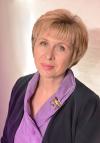References
- FZ RF ot 29.12.2012 № 273-FZ «Ob obrazovanii v Rossijskoj Federacii». Gl. 10 «Dopolnitel'noe obrazovanie» (red. ot 12.02.2019, s izmenenijami i dop., vstupivshimi v silu 13.12.19). [Jelektronnyj resurs]. – Jelektron. dan. – URL: http://www.consultant.ru/document/cons_doc_LAW_140174/ − (data obrashhenija 14.12.19).
- Mezhdunarodnaja standartnaja klassifikacija obrazovanija. MSKO 2011, [Jelektron-nyj resurs]. – Jelektron. dan. – URL : http://uis.unesco.org/sites/default/files/documents/isced-2011-ru.pdf − (data obrashhenija 09.09.2019).
- Rezoljucija 34 C/20. [Jelektronnyj resurs]. – Jelektron. dan. – URL: https://www.ifap.ru/pr/2012/n120123a.pdf − (data obrashhenija 09.09.2019).
- Baugesetzbuch, BauGB. [Jelektronnyj resurs]. – Jelektron. dan. – URL: https://germanlawarchive.iuscomp.org/?p=649 − (data obrashhenija 09.09.2019).
- Plan- och bygglagen. [Jelektronnyj resurs]. – Jelektron. dan. – URL: https://lagen.nu/2010:900 − (data obrashhenija 09.09.2019).
- Town and Country Planning Act 1990. [Jelektronnyj resurs]. – Jelektron. dan. – URL: https://www.unece.org/fileadmin/DAM/env/pp/compliance/C2011-61/Communication/ Town_CountryPlanAct1990.pdf − (data obrashhenija 09.09.2019).
- Gavrilova, I. V. Formal'naja, neformal'naja i informal'naja modeli obrazovanija / I. V. Gavrilova, L. A. Zaprudnova // Molodoj uchenyj. – 2016. – № 10. – S. 1197–1200.
- Sanoff, G. Souchastvujushhee proektirovanie. Praktiki obshhestvennogo uchastija v formirovanii sredy bol'shih i malyh gorodov : per. s angl. / G. Sanoff; [red.: N. Snigireva, D. Smirnov]. – Vologda : Proektnaja gruppa 8, 2015. – 170 s.
- Topchij, I. V. Dopolnitel'noe obrazovanie v Japonii / I. V. Topchij // Arhitektura i stroitel'stvo Rossii.− 2019. – № 2. – S. 100−107.
- Flerov, O. V. Dopolnitel'noe professional'noe obrazovanie v prostranstve nepreryvnogo obrazovanija lichnosti / O. V. Flerov // Pedagogika. Voprosy teorii i prakti-ki. – Tambov : Gramota, 2017. – № 3 (07). – C. 103–106.
- Boehm, J. Supplementary Education / J. Boehm // Journal of Education in Black Sea Re-gion. – 2018. – Vol. 4. – № 1.– P. 44–52.
- Lave J. Situated learning. Legitimate peripheral participation / J. Lave, Wenger E. − Cambridge, 1991.
- Learning in landscapes of practice. Boundaries, identity, and knowledgeability in prac-tice-based learning. – Routledge, 2014.
- Tierney, G. Alternative Schools in the United States: How History, Policy, and Defini-tions of Success Define Alternative Schools and the Youth Who Attend Them. International Per-spectives on Alternative Education: Policy and Practice. − S. l, 2018.
- Wenger, E. Communities of practice. Learning, meaning and identity / E. Wenger. – Cam-bridge: Cambridge University Press, 1998.
- Nefedova, G. M. Specifika integracii formal'nogo, neformal'nogo i informal'nogo obrazovanija / G. M. Nefedova // Ped. Rev. – 2017. – № 3 (17). [Jelektronnyj resurs]. – Jelektron. dan. – URL : https://cyberleninka.ru/article/n/spetsifika-integratsii-formalnogo-neformalnogo-i-informalnogo-obrazovaniya − (data obrashhenija 02.09.2019).
- Sokolova, E. I. Strany − evropejskie lidery v oblasti nepreryvnogo obrazova-nija / E. I. Sokolova // Nepreryvnoe obrazovanie: XXI vek. – 2017. – Vyp. 2 (18). – DOI: 10.15393/j5.art.2017.3506 − (data obrashhenija 02.09.2019).
- Egenkontroll. Sweden [Jelektronnyj resurs]. – Jelektron. dan. − URL: https://web.archive.org/web/20090923175516/http://www.naturvardsverket.se/sv/Lagar-och-andra-styrmedel/Tillsyn-och-egenkontroll/Egenkontroll − (data obrashhenija 06.11.2019).
- Le Grand Débat de la Culture [Jelektronnyj resurs]. – Jelektron. dan. – URL: https://granddebatculture.fr/ − (data obrashhenija 06.11.2019).
- Maton, R. Mobilizing Public Alternative Schools for Post-neoliberal. Futures Legacies of Critical Hope in Philadelphia and Toronto. Policy Futures in Education / R. Maton, T. P. Nichols. – S. l., 2018. [Jelektronnyj resurs]. – Jelektron. dan. – URL: https://doi.org/https://doi.org/10.1177/1478210318789730 − (data obrashhenija 02.09.2019).
- Preston, R. How to Foster Civic Engagement in the Age of Twitter / R. Preston. − 29 March, 2016. [Jelektronnyj resurs]. – Jelektron. dan. – URL: https://www.archdaily.com/784563/how-to-foster-civic-engagement-in-the-age-of-twitter#_=_ (data obrashhenija 06.09.19).
- Civil Society Engagement with political parties during elections lessons from Ghana b Serra Leone. Oxfamreaseach Reports. − 2013.– Dec. [Jelektronnyj resurs]. – Jelektron. dan. – URL: https://www.oxfam.org/en/research/civil-society-engagement-political-parties-during-elections. − (data obrashhenija 06.11.19).
- Weigel, S. Das kann ja wohl nicht so schwer sein!? / S. Weigel, B. Fechler // Perspektive mediation. – 2019. – № 2. – P. 96−102. [Jelektronnyj resurs]. – Jelektron. dan. – URL: https://doi.org/10.33196/pm201902009601 − (data obrashhenija 06.11.19).
- What is supplementary education? [Jelektronnyj resurs]. – Jelektron. dan. – URL: https://supplementaryeducation.org.uk/wp-content/uploads/2013/01/nrcsebulletin-12-summer2009.pdf − (data obrashhenija 06.11.2019).












